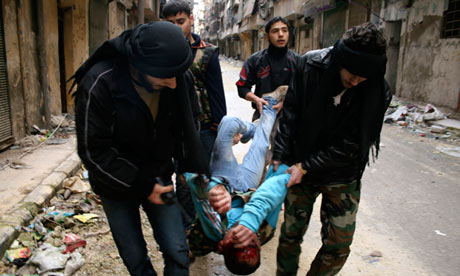By Pearl Rimon
Impunity Watch Reporter, South America
BUENOS AIRES, Argentina – The former government officials responsible for tens of thousands of disappearances of dissidents in the southern region of South America during the 1970s and 1980s are standing trial for the first time. Twenty-five defendants, all former military officers, are accused of human rights abuses during Operation Condor, which was a decade-long campaign led by six allied military officials who conspired to find activists living in exile in neighboring countries.

Operation Condor coordinated the military dictatorships in Argentina, Bolivia, Brazil, Chile, Paraguay, Peru and Uruguay. Opponents of the regimes were tracked down and often tortured or killed, these included guerrilla fighters, activists, students, priest and journalist.
The defendants include Jorge Videla and Reynaldo Bignone, who were former de factor presidents during the country’s 1976-83 military rule. Both are already serving life sentences for their role in the country’s Dirty War. The sole non-Argentine defendant is Uruguayan Manuel Cordero, a former colon charged with human rights violations from a Buenos Aires torture center. Videla and Bignone were accused of “illicit association” and “deprivation of personal liberty”.
“We’re delighted that after years of struggle this has finally come to trial,” says Alcira Ríos, the lawyer of a Paraguayan victim.
In 1980, a left-wing militant named Horacio Campligia was abducted in Rio de Janeiro and taken to a military base in Buenos Aires, which was his last known whereabouts. “The trial is historic as it’s the first to deal with the repression coordinated between Latin American dictatorships,” says Carolina Varsky, the lawyer representing Campiglia.
“This is a huge step to achieve the truth internationally…” said Atilio Borón, an Argentine political scientist.
The trial is expected to last two years and call 500 witnesses to testify. Judges are expected to rule on 106 victims’ cases directly from Operation Condor and on 56 cases stemming from a related operation. Most of these victims are Uruguayans who disappeared in Argentina, but citizens from neighboring countries were also affected.
“This is the first time in Latin America that a trial is being held over Operation Condor, to prosecute those responsible, above and beyond trials held in some countries for specific cases,” lawyer Luz Palmas of the Fundación Liga Argentina por los Derechos Humanos (FUNLADDHH), a human rights organization.
Operation Condor was backed by the United States. The investigation into the operation began in the late 1990s when impunity laws were still in place. Human rights have been a focal point in Argentina since Néstor Kirchner overturned impunity laws.
For more information, please see:
Christian Science Monitor — Argentina begins prosecution of military-era human rights abuses – 05 March 2013
Global Post — Argentine rights trial spotlights military abuses – 05 March 2013
Inter Press Service — Operation Condor on trial in Argentina – 05 March 2013
Yahoo! News — Argentina begins prosecution of military-era human rights abuses – 05 March 2013



